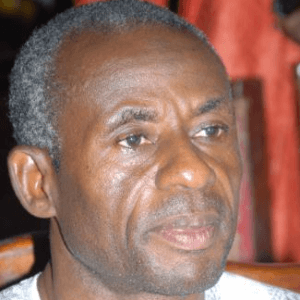Managing urbanisation concerns vital – Dauda

Alhaji Collins Dauda, the Minister for Local Government and Rural Development, has called for effective management of the challenges posed by the high rate of urbanisation.
He said this would ensure that potential economic and social developments arising from urbanisation would be optimised to reduce poverty, improve the quality of lives of the citizenry and protect the environment.
Alhaji Dauda made the call when he opened the 2016 Ghana Urban Forum (GUF) on Tuesday in Sunyani.
The event was on the theme: “Localising the New Urban Agenda: A Catalyst for Financing Urban Infrastructure for Equitable Economic Growth in Ghana”.
It was attended by 150 participants including Metropolitan, Municipal and District Chief Executives (MMDCEs), planning and other executive officers of the Metropolitan, Municipal and District Assemblies (MMDAs), private sector industries players, officials of the Environment Protection Agency, Volta River Authority, Architectural and Engineering Services Limited, the academia and the media.
Alhaji Dauda said Ghana’s ‘New Urban Agenda’ sought to rethink urbanisation in terms of the provision of infrastructure to provide urban services for equitable economic growth for all.
Alhaji Duada said it is commendable that Ghana being one of the developed African countries was implementing a comprehensive ‘National Urban Policy’ and ‘Action Plan’.
This represented a bold attempt to tackle the challenges of urbanisation comprehensively to facilitate and promote the sustainable development of Ghanaian cities and towns, he added.
Alhaji Dauda said through the introduction of the Public-Private Partnership (PPP) Policy, MMDAs were being encouraged to enter into partnerships with private entities to raise funding for capital intensive infrastructure for the economic development and growth of the cities and towns also to create employment opportunities for the youth.
He said government was making efforts to pass the Local Government Borrowing Bill to give opportunities to MMDAs to borrow from the capital market for infrastructure and services for equitable socio-economic growth.
Mr Justice Samuel Adjei, the Deputy Brong-Ahafo Regional Minister, said equitable economic growth and development referred to creating healthy, vibrant and strong economies in the local communities where opportunities thrived for all.
This, he added, were possible when deliberate efforts and strategies were created to ensure that everyone could partake in the economic and social activities that affected their households, communities and nation.
Mr Adjei, however, expressed regret that the country’s current situation depicted a skewed urban settlement and development system with an increasing concentration of people, investments, infrastructure and economic activities in a few large urban centres.
Consequently, the system failed to promote equitable socio-economic development of the country’s vast rural areas, he said, and added that the phenomenon had resulted in a huge drift of the populace from rural areas to urban centres to find better conditions.
Mr Adjei said the few urban areas were consistently reeling under the pressures of increased demand for limited land crime and security concerns, environmental deterioration and the emergence of slums.
He stressed the need for the country to device mechanisms that would the enhance development of other urban centres and rural areas to generate equal opportunities at all levels for the people.
Source: GNA
